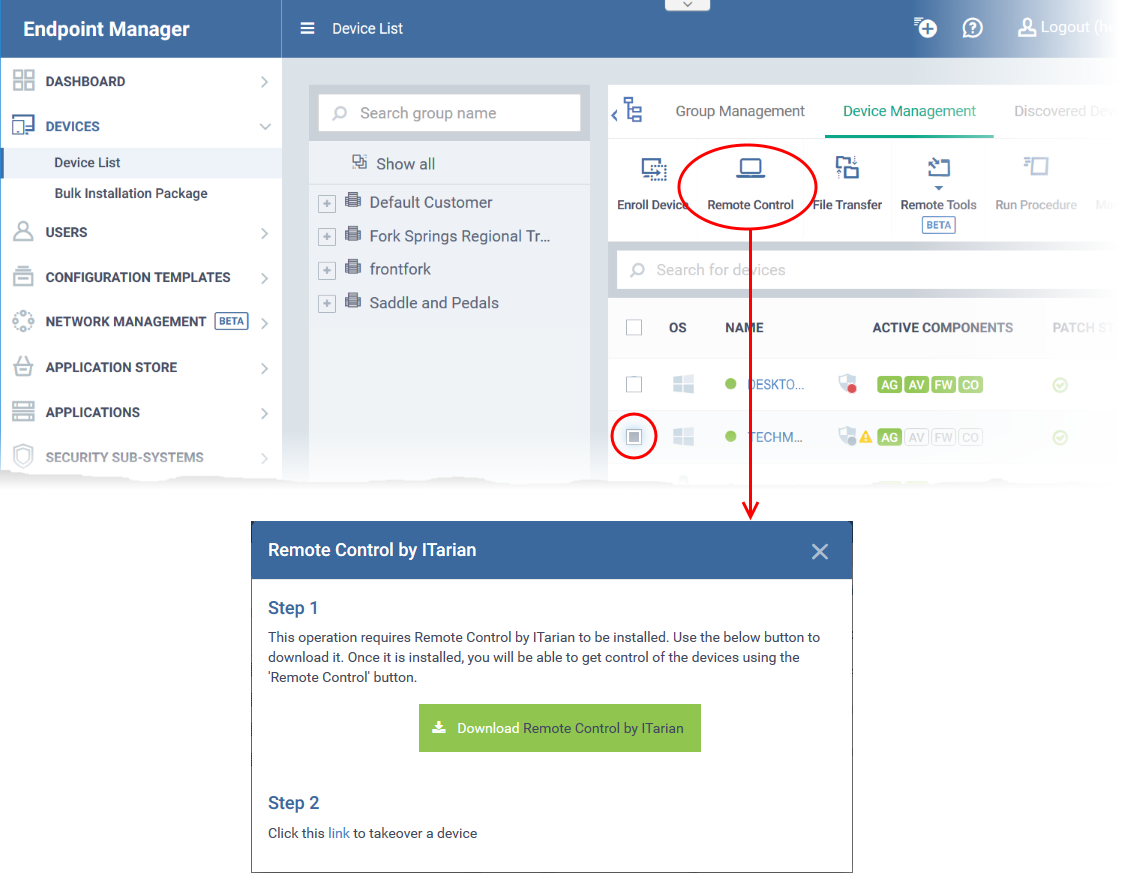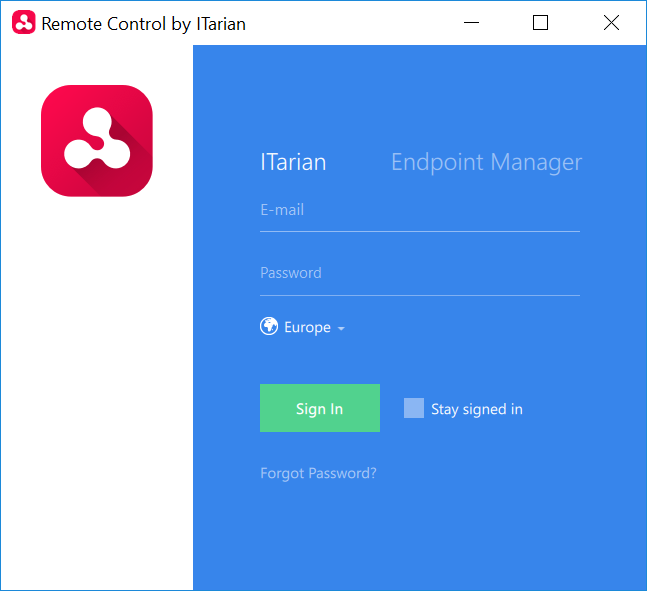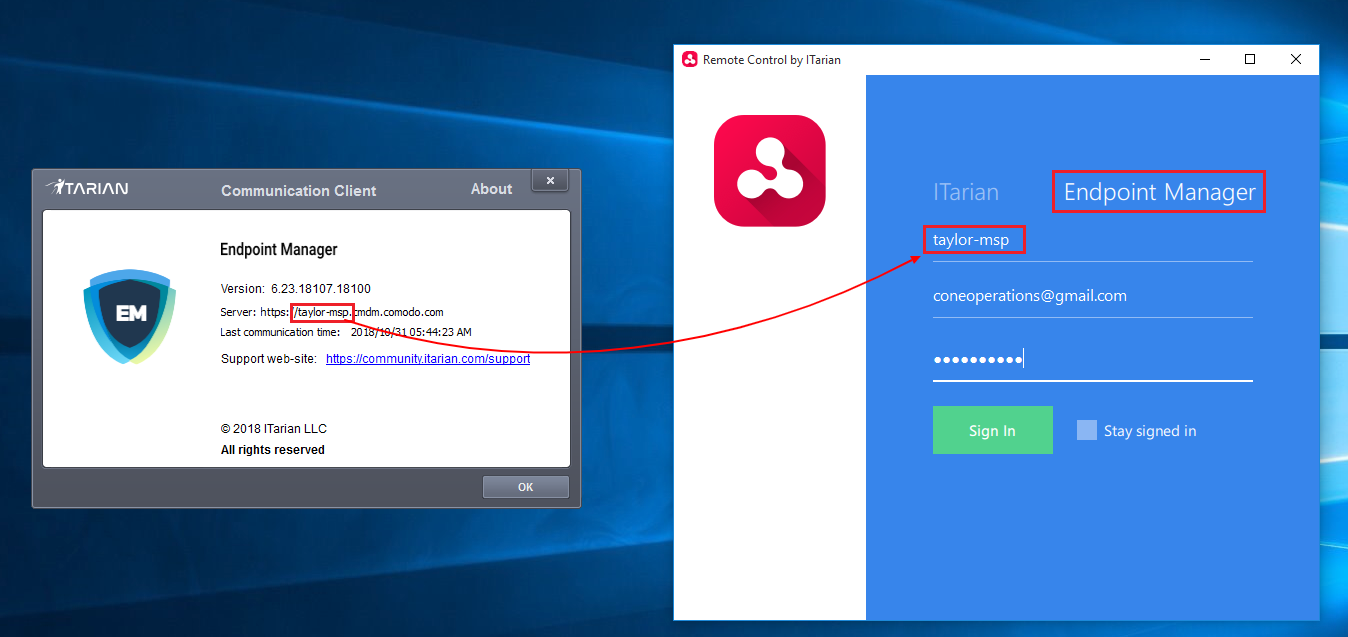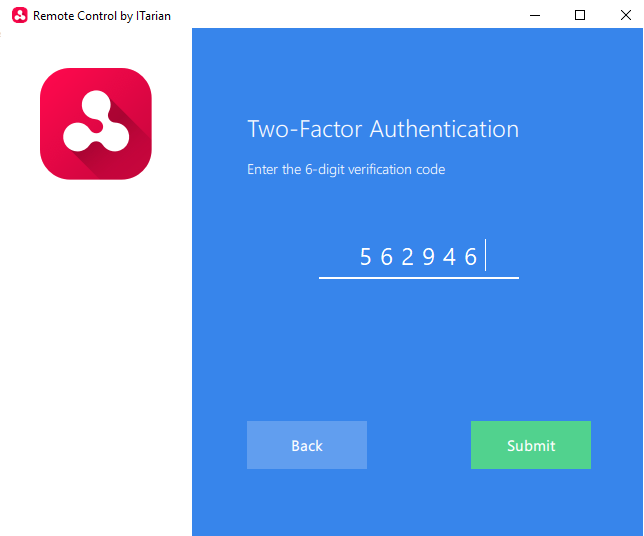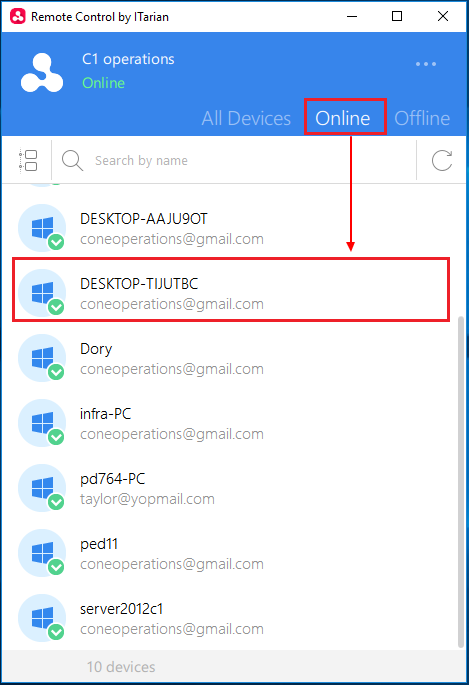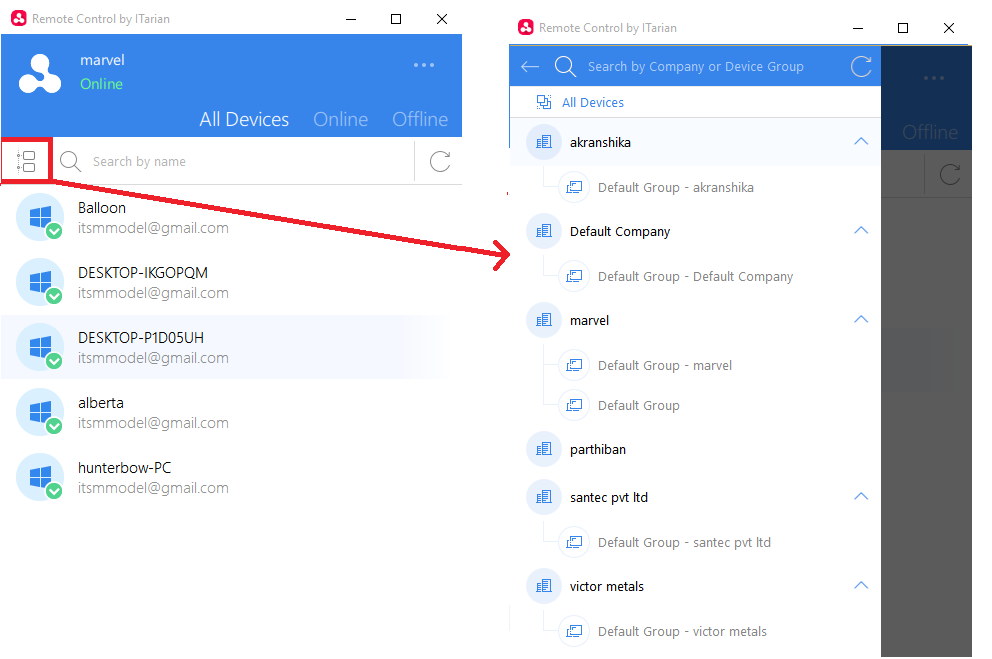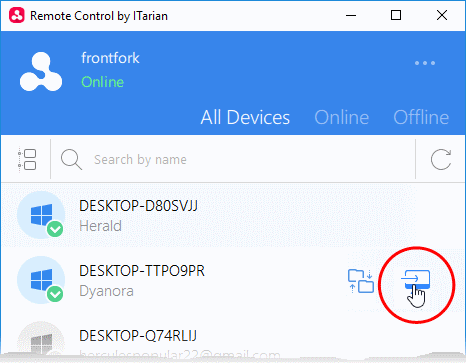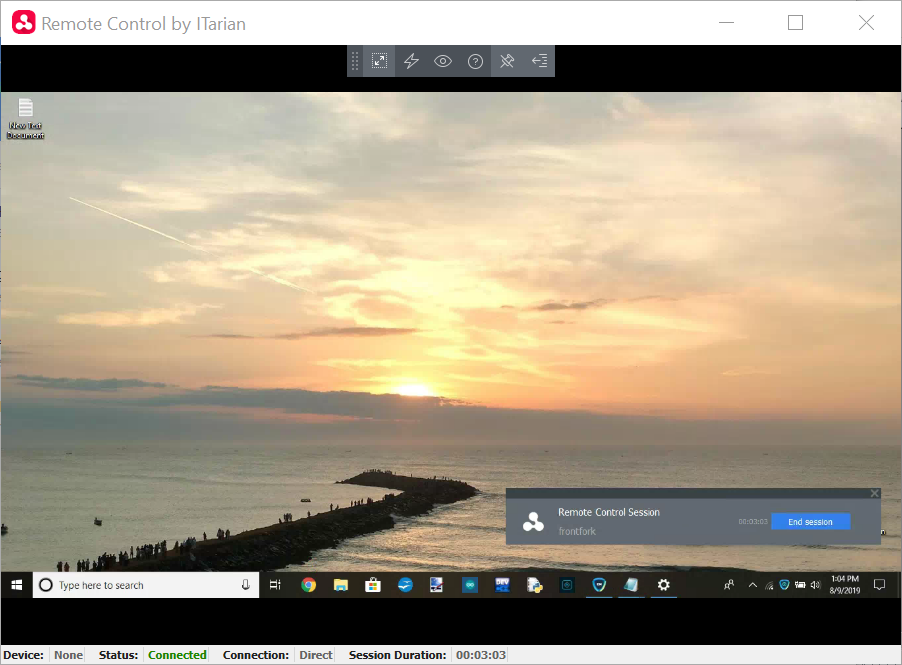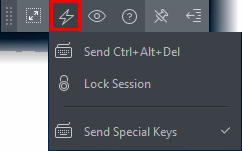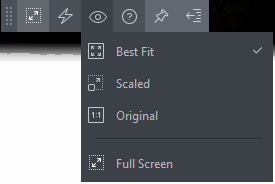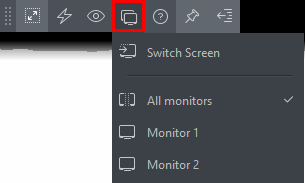How to take Remote Control of a device
-
The remote control (RC) application lets you take over Windows and Mac devices to solve issues, install third party software, and run system maintenance.
-
Once installed, you can start the application from the Endpoint Manager interface or direct from your desktop.
-
This tutorial explains how to:
Process in brief:
-
Login to Comodo One/ Dragon
-
Click ‘Applications’ > ‘Endpoint Manager’
-
Click ‘Devices’ > ‘Device List' > 'Device Management'
-
Select the device you want to control
-
Click the 'Remote Control' button above the table
-
Install the remote control application if required
-
-
Log in to the application with your Comodo One/ Dragon username and password
-
Connect to the target device
Install and login to the application
-
Login to Comodo One/ Dragon from your Windows or Mac OS device
-
Click ‘Applications’ > ‘Endpoint Manager’
-
Click ‘Devices’ > ‘Device List' > 'Device Management'
-
Select the device that you want to control
-
Click 'Remote Control'
-
Click 'Download Remote Control by ITarian'
-
Save the setup file and install it on your computer
-
-
From this point forward, the application will automatically open when you click the ‘Remote Control’ button.
-
You can also open the application outside of Endpoint Manager by clicking the tray icon on your desktop.
-
Next, log-in to the remote control application with your username and password:
There are two ways you can log in:
-
ITarian admins and technicians – Click the 'ITarian' tab and enter your ITarian account username and password
- Endpoint Manager admins – Click the 'Endpoint Manager' tab and enter your sub-domain, username, and password:
-
Select your region and click 'Sign-in'
-
If two-factor authentication is enabled then you have to enter a code from the app on your mobile device
-
See this page If you haven’t set up two-factor, but would like to.
Take control of a Windows or Mac OS device
- After login, the application shows a list of devices enrolled to your account:
- Click the tree icon on the left to filter devices by company or device group:
- Move your mouse over the device you want to control then click the icon on the right:
- A connection request is shown to the end-user if so configured in the device profile:
-
You can configure these connection requests in the ‘Remote Control’ section of an endpoint manager profile. You have the following broad options:
-
Take remote control without asking permission
-
Ask permission but take control anyway if they don't respond within a set time
-
Ask permission but close the connection if they don't respond within a set time
-
Disable remote control entirely
-
See https://wiki.comodo.com/frontend/web/topic/how-to-set-remote-control-options-in-a-profile if you need help with this.
-
- The following notification appears on the endpoint when you have established control:
You can now access the desktop of the remote computer:
Use the application to perform operations on the remote device
-
Use the toolbar at the top of the interface to perform the following actions:
Full Screen - The remote desktop will cover your entire display, without a window-frame.
Click the icon again to exit full-screen mode.
Position - Click and drag the tool bar to your preferred location.
Pin - Lock or unlock the tool bar to the title bar in full screen view.
Minimize/Maximize - Show/hide tool bar options.
Actions - Send control commands to the endpoint.
- Send Ctrl + Alt + Del - (Windows only)
Opens the Windows security screen.
This lets you lock the computer, log the current user out of the machine, change passwords, view task manager, or shutdown/restart/hibernate the machine.- Lock Session - Locks the remote endpoint. A password will be required to unlock it.
- Send Special Keys - If enabled, allows you to send key combination commands such as Ctrl+C, Windows+R, etc.
Special key combinations depend on the operating system of the local device and the remote device. See the list of available special key combinations below.View - Change the display size of the remote desktop. The options are:
- Best Fit - Automatically adjusts the screen resolution for the best visual experience.
- Scaled - Displays the target desktop with the resolution of the admin computer
- Original - Displays the target desktop at its own resolution
- Fullscreen - Displays the remote desktop in full-screen view
Multi-Screen - The multi-screen icon only appears if the target point endpoint has a multi-monitor setup. The drop-down shows all monitors connected to the endpoint and allows you to choose which to view.
- Select 'Switch Screen' to move to the next screen on the list
- Select 'All Monitors' to view all connected screens simultaneously
- Select an individual monitor to view it in stand-alone mode
|
Admin Device |
Remote Device |
|
|
Windows |
Mac OS |
|
|
Windows |
'Windows' key is sent only to the remote device Shortcuts in combination with 'Windows' key are applied only to the remote device |
'Windows'/'Command' key is sent only to the remote device. Exceptions: Ctrl+Alt+Del Win+L PRINT SCREEN and NUMLOCK are not sent to the remote device NumPad digit keys always behave as arrow-keys on Mac OS 'Context Menu' key is sent as zero scan code and appears as a key 'a'. |
|
Mac OS |
All shortcuts with the 'Command' key are applied to the remote device except 'Command+Esc’ Command+Tab - Switches between applications F11 - Shows desktop Ctrl +Up Arrow - Shows all Windows Ctrl+Down Arrow - Shows active application Window |
If Apple is keyboard used: Media buttons (e.g. PLAY, STOP, MISSION CONTROL), POWER, EJECT keys and all system shortcuts with these keys are applied only to the local device. Shortcuts with COMMAND are applied to the remote device, except 'COMMAND' key+Esc Command+Tab - Switches between applications Ctrl +Up Arrow - Shows all Windows Ctrl+Down Arrow - Shows active application Window Fn+F11 - Shows desktop Fn+F12 - Shows Dashboard or enable standard key in Keyboard settings If non-Apple keyboard is used: Shortcuts with WIN are applied to the remote device, except 'WIN' key+Esc Command+Tab - Switches between applications Ctrl +Up Arrow - Shows all Windows Ctrl+Down Arrow - Shows active application Window F11 - Shows desktop F12 - Shows Dashboard |
- Full list of Windows keyboard shortcuts - https://support.microsoft.com/en-us/help/12445/windows-keyboard-shortcuts.
-
Full list of MAC keyboard shortcuts - https://support.apple.com/en-us/HT201236.
